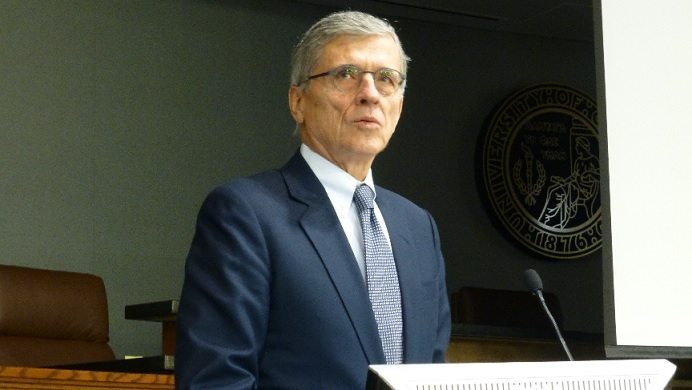Consumers call it throttling, carriers call it network optimization…
T-Mobile US is the latest carrier to announce LTE throttling
The Federal Communications Commission is sure to hear from consumers about T-Mobile US’s plan to throttle some LTE users. Those found to be breaking T-Mobile US’s rules by using their 4G connections for peer-to-peer file sharing of tethering could see slower data speeds as soon as Sunday, Aug. 17.
Throttling is a dirty word to mobile data addicts and consumer watchdogs alike. Carriers call it network optimization, reflecting the supplier’s point of view, but from the demand side the practice presents as cramming data into a narrower, slower pipe — throttling. LTE throttling sprang into the spotlight recently when Verizon Wireless said that it will slow data speeds for some of its heaviest LTE data users starting in October.
Verizon’s announcement sparked what has amounted to a war of words between the carrier and the FCC, with Verizon Wireless CEO Dan Mead telling reporters, “I’m not sure the chairman understood what we’re doing exactly,” while his SVP of federal regulatory affairs penned a letter to the agency claiming that other carriers already slow down data delivery and that “This practice has been widely accepted with little or no controversy.” Wheeler’s response: “‘All the kids do it’ was never something that worked for me when I was growing up.”
Who’s doing it and how often may be of great interest to the FCC, but let’s hope the agency gives equal attention to the question of why it’s being done. Wheeler has asked all four of the major carriers for information about their network optimization policies. He says he doesn’t want carriers “choosing between different subscribers based on your economic relationship with them.”
For Verizon and T-Mobile US, the “economic relationship” with certain subscribers has crept into the picture. The heavy users they plan to throttle are those on unlimited data plans. In Verizon’s case, the 5% of unlimited data subscibers who consume the most data will see slower data speeds when they hit a congested cell site.
Carriers say they throttle data to make sure that a few heavy users do not overtax the network and slow it down for everyone else. In an ideal world, carriers could charge these heavy users more and give them all the superfast data they could handle. But not if those users have unlimited data at a set price.
Even for users who pay based on usage, carriers can make a case for throttling. Network resources are limited, and giving some users all the LTE data they want could leave others with files that won’t download or movies that stall — unintentional throttling.
When carriers “optimize the network” by slowing down data speeds they are trying to create the best possible experience for the highest number of users. Is this a financial decision? Absolutely. Customers who have bad experiences leave the network and stop paying. But is it unfair or discriminatory? Maybe not, if accomplished correctly. Successful network optimization means that when the network is congested, some users receive data at a slightly slower rate but very few users receive no data at all.
The next logical question for mobile subscribers is “Can I pay more to avoid throttling?” That’s a question the FCC may eventually let carriers answer in the affirmative. The Commission has made it clear that it is open to the idea of “fast lanes” for high speed data, and those fast lanes are generally understood to be toll roads.
But you’ll need more than a fat wallet and Washington’s blessing to get into the fast lane when it comes to mobile broadband. You’ll need a robust LTE network with software that knows who you are and what you’ve paid for. The same type of software Verizon and T-Mobile US plan to use for throttling.
Follow me on Twitter.

